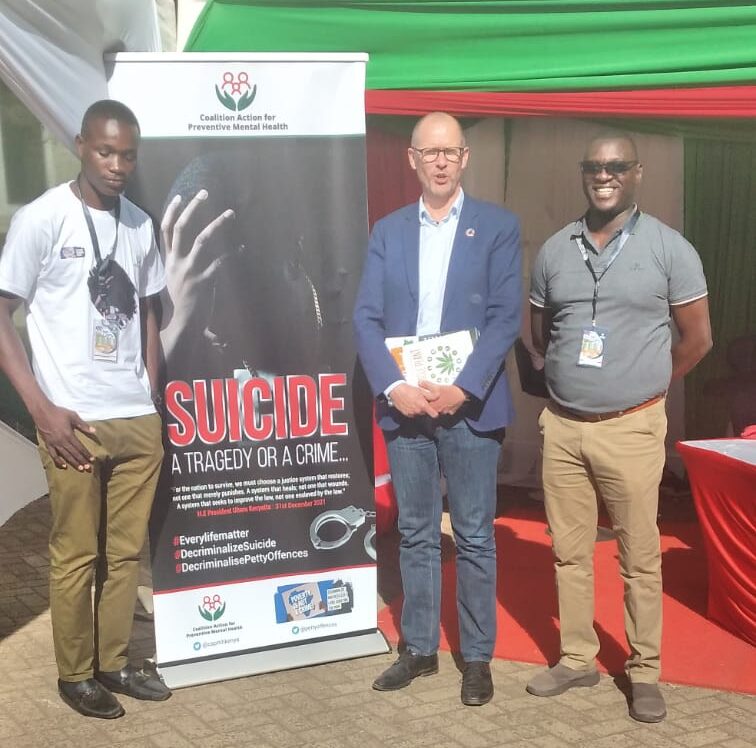In Kenya attempted suicide as laid out by Section 226 of the Penal Code is a misdemeanor punishable by Two (2) Year’s imprisonment or a fine or both, pursuant to the provisions of Section 36 of the Penal Code. Persons with intellectual and psychosocial disabilities arrested for attempted suicide have been detained at Mathari Mental Hospital without trial for prolonged periods, exceeding the penalty for the offence under the Penal Code.
The WHO has estimated that suicides in Kenya in 2019 were at least 3214, although this data should be read with caution given data collection gaps. Kenya’s government has acknowledged an escalation in suicides since the 2019 estimate, with an estimated 500 suicides between March and June 2021. In 2020, the government recognized the need to fast-track the National Suicide Prevention Strategy and Programme (2021-26), and to increase access to mental health services given the impact of the Covid-19 pandemic on mental health.
Attempted suicide laws in Africa can be traced as far back as the fifth century in Europe from lenient Roman philosophical beliefs towards punitive measures. In England, “self-murder” came to be regarded as a sin against God, the King, and nature. The King of England declared that the property of someone who committed suicide would be forfeited to his feudal lord. It was only in 1961 that the British implemented the Suicide Act. The Act decriminalized suicide in England and Wales, so that anyone who failed in their attempt to commit suicide would no longer face prosecution.
Long before the Suicide Act was implemented in the UK, the British Colonial Office had introduced the offence in its colonies. Starting with India Section 309 of the Penal Code . later copied in Bangladesh, Pakistan(Currently the Senate has passed the Decriminalization Bill and its proceeding to Parliament for debate) and Malaysia. The offence of attempted suicide is currently in the Penal Codes of Uganda, Tanzania, Malawi, South Sudan, Sudan, Somaliland, Ghana, Nigeria and Kenya. In Lesotho and Rwanda, attempted suicide is explicitly not a criminal offence. In other countries it is simply not mentioned in the Penal Codes.
Suicide is the act of deliberately killing oneself (WHO, 2014). While attempted suicide is a self‐inflicted, potentially injurious behavior with a nonfatal outcome for which there is evidence (either explicit or implicit) of intent to die (Silverman, Berman, Sanddal, O’Carroll P, & Joiner, 2007). The criminalization of attempted suicide undermines national and international suicide prevention efforts and impedes access among vulnerable individuals and groups to suicide prevention and mental health services.
Through the support of campaign partner SALC, CAPMHK is enjoined as amicus in a petition filed by the Kenya National Human Rights Commission for the decriminalization of suicide. Concurrently we are engaged in community based advocacy on social media by doing infographics translation hopefully to all (47 Kenyan languages) webinars and tweet chats. Subject to availability of resources we intend to have grassroots barazas workshops and various stakeholders engagements with sessions on vernacular based radio stations.


